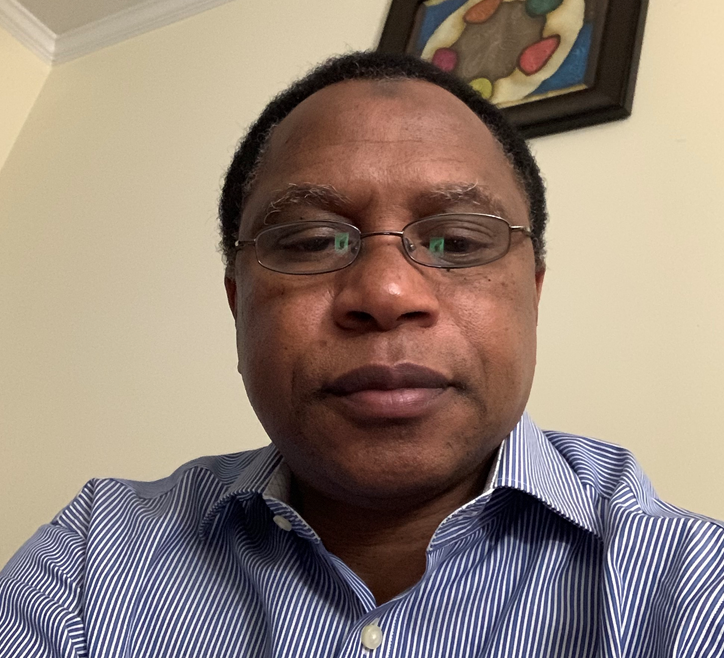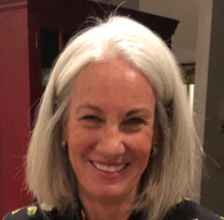
2019 triangle global health annual conference
Breakout Sessions
MORNING
11:00 am-12:00 pm
Workshop: Outbreak DIY: A Smithsonian Tool for Public Health Communication
Communicating public health information to non-expert audiences is critical yet challenging. The Smithsonian’s National Museum of Natural History (NMNH) undertook this challenge in the current exhibition Outbreak: Epidemics in a Connected World, leveraging the Museum’s unique resources to communicate One Health to millions of Smithsonian visitors. To spread Outbreak’s messages of global health to a global audience, NMNH also launched its first-ever Do-It-Yourself (DIY) exhibition, Outbreak DIY. In this workshop, participants will be introduced to this free tool for public health communication, working with museum experts and learning effective informal science education and engagement strategies for diverse audiences.
Outbreak DIY is a flexible set of assets for all types of learning, including printable panels and 3D models, digital interactives and videos, volunteer training and promotional materials, analog games and a public forum kit, as well as resource and style guides. In addition to English, Outbreak DIY is available in bilingual formats and offers template panels for customization.
Outbreak DIY has been used at over 95 locations and counting, from Montana to Myanmar, in diverse settings that include libraries, hospitals, classrooms, gardens, parks, airports, museums, and community health centers. The versatility of the tool kit is illustrated in how different users have selected, displayed, translated, and supplemented the materials for their local communities. The goal of this workshop is to continue this global conversation of One Health by inviting the workshop participants to join it.
Room: Junior Ballroom B
Workshop: The Future of Health Work in Africa. What Will It Look Like in 2040? What Will It Mean for Global Health in North Carolina?
Scenarios are stories about the future that help us make better decisions today. IntraHealth International is researching, exploring, and sketching out a set of plausible scenarios for health work in sub-Saharan Africa in 2040, and by extension the future of health workforce development. Input has been contributed by experts within global health and workforce development but also from outside the health space—including technologists, sociologists, political scientists, economists, and African futurists. Scenarios explore health systems and labor market dynamics as well as powerful forces of change that mostly originate outside of the health sector, such as climate change, geopolitical contexts, automation of work, and data governance.
Participants in this interactive session will consider four draft scenarios for the next 20 years of health workforce development in Africa that capture a range of future possibilities—good and bad, expected and surprising. Discussions will be guided by key questions framed through the lens of participants’ own work and experiences as North Carolina-based global health thought leaders, practitioners, and students. Are all of these scenarios relevant from your perspectives? Are they divergent enough? Are they plausible and, if so, what might they mean for the future of global health in the Triangle, and for your organization or career? What are implications beyond health workforce development and in the context of One Health? Are there decisions you would like to see made today based on these visions of the future?
Room: Meeting Rooms 3 & 4
Panel: Pathways to One Health Research in Vector Borne Disease
The concept of One Health is receiving increasing amounts of attention for integrating diverse disciplines to promote human, animal, and environmental health worldwide. However, because One Health is so broad, it may be difficult for researchers new to One Health to know how to navigate the collaborative landscape. Vector-borne zoonotic diseases cause significant morbidity and mortality among human and animal populations worldwide, and require understanding vector biology and ecology. Therefore, vector-borne zoonotic disease represents an important public health problem that requires a One Health approach to comprehensively understand and manage.
This panel includes researchers from human medicine, environmental science, ecology, and veterinary medicine to discuss the practical realities of initiating and maintaining One Health collaborations within the area of vector-borne zoonotic disease. Each speaker will focus on the process that led them to collaborate on a specific One Health project, the practical lessons learned in applying One Health principles to their research, and strategies for success in One Health research. As a result, this panel will provide functional and applicable guidance to trainees in all disciplines interested in initiating research with a One Health focus, as well as experienced researchers looking to pursue new collaborations.
Room: Junior Ballroom C
Workshop: Streamlining Advocacy Approaches to Address One Health Issues
Policy change sustains advances made through One Health interdisciplinary programs. Working within an advocacy framework allows an advocate to be strategic and target advocacy to stakeholders influencing policy change.
FHI 360 has implemented and provided technical assistance to policy advocacy programs in areas such as family planning, HIV/AIDS and nutrition policy. FHI 360’s advocacy work is grounded in a step-by-step framework that includes defining the issue, setting goals and objectives, identifying target audiences and partnerships, planning advocacy communication and activities, and developing a plan to monitor progress. Utilizing this framework helped local counterparts from civil society and government to translate innovative advocacy ideas into practical formats to better facilitate implementation.
One critical step in this process is the identification and assessment of targets -- decision-makers and the influencers who persuade them. This session will introduce participants to an advocacy framework, with a detailed focus on the identification and assessment of relevant decision makers. Through practical exercises examining prominent One Health issues such as Zika, participants will gain skills to analyze decision-makers and target advocacy messages and activities which will be broadly applicable to their work.
Room: Junior Ballroom D
Workshop: Measuring Multisectoral Coordination Mechanisms – A Digitally Empowered One Health Assessment for Planning and Performance (OH-APP)
A Multisectoral One Health approach to disease prevention and response is critical to strengthening health security. While the Tripartite (WHO, OIE, and FAO) endorse the establishment of multisectoral coordination mechanisms (MCMs) to address concerns at the animal, human, and environmental interface, and many countries have established MCMs to support AMR and zoonotic disease prevention, detection, and response, few have used more specific metrics to benchmark progress over time.
To respond to this challenge, DAI developed the One Health Assessment for Planning and Performance (OH-APP) - a monitoring framework for MCMs to annually self-assess their organizational capacity and performance and inform planning and development assistance. The OH-APP involves a workshop format where participants agree on 30 categorical indicators across six capacity domains. Participatory approaches to decision making coupled with an online data collection tool (www.onehealthapp.org) provide real-time analysis for action planning.
In this simulation, participants will role-play as the multisectoral stakeholders in a set of fictitious countries. They will respond to 5 of the 30 questions to determine the maturity level of each indicator, and then use the real-time reporting tool to make plans on next steps towards achieving the national level One Health goals.
Room: Junior Ballroom A
Panel: Strengthening Human and Zoonotic Disease Surveillance in Burkina Faso, Mali and Senegal: Challenges, Opportunities and the Future
The 2014 West African Ebola outbreak highlighted the fragility of health systems in the affected countries. From early detection to case management, communities, laboratories, and facilities were unfamiliar with Ebola and were not equipped to respond. Since then, the Global Health Security Agenda — a partnership of countries and international and nongovernmental organizations—has been strengthening countries’ capacity to prevent, detect, and respond to human and animal infectious diseases.
As part of that effort, MEASURE Evaluation—funded by the U.S. Agency for International Development—is helping Burkina Faso, Mali, and Senegal to strengthen human and zoonotic disease surveillance and reporting by ministries of health, animals and fisheries, and environment supporting the One Health approach. Experts working in the three countries will respond to these questions:
-
What is the fundamental IT architecture needed to enable electronic real-time surveillance in the three countries?
-
What are best practices for establishing multisectoral platforms for stakeholder coordination and collaboration?
-
For community detection of health threats, what are the advantages and disadvantages of the approaches to community-based surveillance in Senegal and Burkina Faso?
-
What are key elements to consider related to cross-border data sharing?
-
For each country, what is the right direction, and attendant challenges and opportunities?
Room: Meeting Rooms 1 & 2
AFTERNOON
1:10-2:10 PM
Panel: One Health Efforts are Likely to Fail Unless Partnerships are Gained with Agricultural Industries and Food Animal Veterinarians
The One Health approach has received widespread international endorsements from professional, academic, and governmental organizations as the best way forward in tackling complex interdisciplinary problems, such as emerging zoonotic diseases, antimicrobial resistance (AMR), and food safety. Yet conspicuously absent from U.S. One Health planning, training, or research activities are the animal agricultural industries. Their absence is likely due to multiple factors, including the lack of appreciation for their potential problem-solving roles, as well as the industries’ business-oriented fears that such engagement could lead to further disparagement of efficient food production systems. Key questions remain regarding the One Health-oriented interventions that animal agriculture industries have made. For instance, have AMR problems in U.S. human health settings improved as antibiotic availability in animal agriculture has declined, or have the increased mortality in veterinary patients and increased carbon footprint associated with that reduction been in vain? As the animal agriculture industries are closely linked to a number of such complex human health problems, and as the industries could benefit from the considerable new technology that is invested in human health, the panel members argue that we must find new, non-threatening ways to bring animal agriculture into One Health partnerships for successful problem solving. Without animal agricultural industries’ strong collaboration, One Health efforts to control these complex problems are not likely to succeed. This panel will engage human public health and animal industry veterinary professionals in considering better ways to work together.
Room: Junior Ballroom C
Panel: A One Health Approach to Understanding Ticks and Tickborne Illness in North Carolina
Vector-borne diseases (VBD) represent a historical and evolving threat to the residents of North Carolina. North Carolina consistently ranks among the top five states in confirmed and probable cases of spotted fever group rickettsiosis. Additionally, the southern expansion of Lyme disease from the northeast into southern Virginia, Tennessee and North Carolina has generated renewed interest in understanding the phenology and distribution of Ixodes scapularis ticks in the southern states. The risk of human infection with VBD and means of prevention are dependent on the understanding of the natural nidality of transmissible diseases. Due to limited entomological surveillance in previous years, the state is unclear where, geographically, traditional tick vector species are located. To gather this information the N.C. Division of Public Health has developed a series of collaborations with the Centers for Disease Control and Prevention (CDC) in Fort Collins, university partners, the State Laboratory of Public Health, the N.C. Department of Agriculture and Consumer Services (NCDA&CS), and veterinarians to understanding of the ecology and distribution of tick vectors and tickborne pathogens using a One Health approach. Results indicate that Ixodes ticks are present in the northwest region of North Carolina and do harbor Borrelia. Surveillance efforts indicate that vector species of spotted fever group rickettsiosis and ehrlichiosis have been identified statewide, following North Carolina trends of human disease. Additionally, the Asian longhorned tick, Haemaphysalis longcornis, has been identified in three additional North Carolina counties as a result of the One Health approach.
Room: Meeting Rooms 1 & 2
Panel: Public-Private Partnership Models Driving Infectious Disease Innovation
The Triangle region plays an important role in supporting U.S. government efforts to combat infectious disease and respond to environmental disasters. This includes participation in two innovation and commercialization accelerators funded by BARDA (Biomedical Advanced Research and Development Authority): DRIVe (Division of Research, Innovation, and Ventures) and CARB-X (Combating Antibiotic Resistant Bacteria Biopharmaceutical Accelerator). This panel will feature representatives from these two programs and showcase examples of research and innovation supported through public-private partnership models.
Room: Junior Ballroom D
Panel: Applying a One Health Approach to Preparedness and Response --Lessons Learned and the Future of One Health
The One Health approach recognizes the critical interface between animal, human, and environmental health and supports the implementation and success of the Global Health Security Agenda and other global health security frameworks through its emphasis on multi-sectoral coordination to enhance in-country capacity to better prevent, detect, prepare for and respond to infectious disease threats. Global actors including the U.S. Agency for International Development (USAID), the World Bank, the United Nations, and the U.S. Centers for Disease Control and Prevention (CDC) have made major investments and technical contributions to assist countries in their efforts to advance One Health on the ground.
While One Health achievements have been made across countries, successes are sometimes uneven and, in many cases, can benefit from more strategic and active collaboration, coordination, and communication between disciplines and sectors. Lessons learned through implementation and the ongoing Ebola outbreak in DRC highlight the need for more practical and sustainable preparedness and response mechanisms that apply a One Health approach to better allocate resources and investments.
Experts on this panel will examine the role of One Health in addressing disease preparedness and response through the policy development cycle and using participatory models of health governance; the critical role of community engagement and social mobilization; the importance of developing multisectoral preparedness plans for diseases of unknown etiology; and through building a more sustained and responsive one health workforce. The panel will be a dynamic discussion on where and how we can advance the One Health approach into the future.
Room: Junior Ballroom A
Workshop: One Health Community-based Surveillance: A Practical Approach to Program Planning and Overcoming Challenges
The facilitators of this workshop will engage participants through case studies and role play to impart practical knowledge about all phases of implementing a One Health approach to community-based surveillance. The workshop will draw from the facilitators’ experience working on MEASURE Evaluation (funded by the U.S. Agency for International Development) in Burkina Faso, as well as in other settings.
Major themes that will be covered include:
-
Addressing governance and policy
-
Working with stakeholders
-
Planning a community-based surveillance program
-
Implementing the program
Room: Meeting Rooms 3 & 4
Panel: Reach the People: How to Communicate Global Health Issues and Solutions
Publishing scientific journal articles isn’t enough. To improve global health, researchers, students and professionals need to engage the public in the issues and the solutions. This panel explores the why and how of communicating global health to the public and policymakers. Panelists from the worlds of academia, nonprofits and journalism will share their expertise and strategies in news media, social media, commentaries and op-eds, and other channels. Stories about success and failures will guide audience members with insights on what works and doesn’t work.
Room: Junior Ballroom B










































